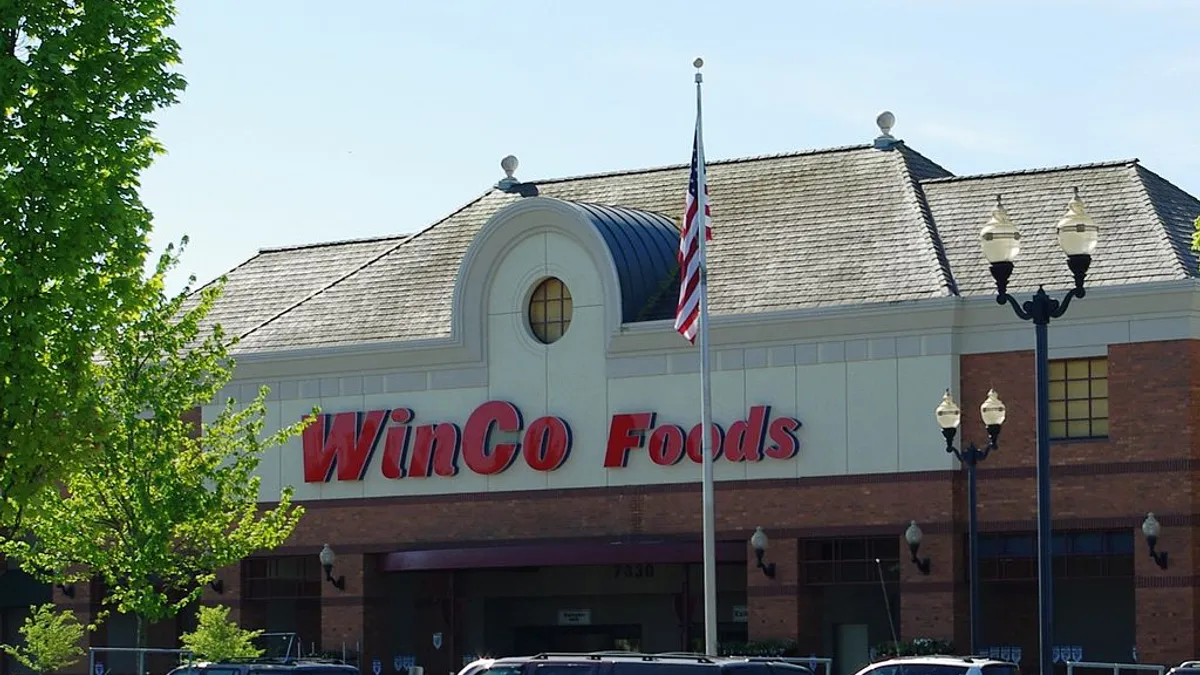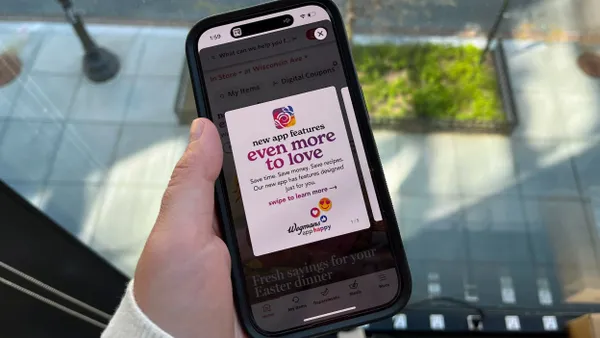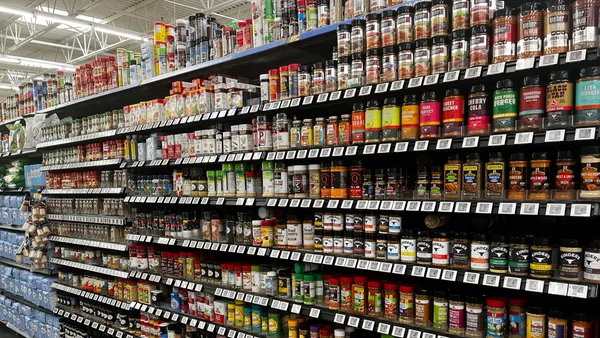Dive Brief:
- Boise, Idaho-based grocery retailer WinCo Foods is partnering with Afresh to roll out artificial intelligence-powered software for fresh replenishment across its entire store chain, according to a press release by the two companies Thursday.
- The platform, which will be integrated into 129 stores across 10 states, allows grocers to check on produce inventory more efficiently and accurately, reducing food waste and avoiding unnecessary losses.
- By tracking demand and managing inventory orders, Afresh says its platform optimizes the financials of fresh departments and boosts grocers’ produce margins by as much as 40%.
Dive Insight:
The partnership with WinCo continues Afresh's growth as grocers look to combat food waste eating away at their margins.
Founded in 2017 in San Francisco, Afresh just last month passed the $100 million valuation mark, having recently reported $13 million in new funding on top of a $12 million round in the summer. According to the company, stores that use Afresh software reduced food waste by 25% compared to their peers and saw upticks in their operating margins.
Heinen’s announced its partnership with Afresh in August, and James McCann, former CEO of Ahold USA, joined Afresh’s board of directors earlier this year.
Food waste is an $18.2 billion problem for retailers, according to nonprofit ReFED, and awareness of the issue has motivated more grocers to shift their operations. Kroger said in 2018 it would eliminate food waste by 2025 through prevention, donation and diversion efforts by relying on technology like its automated in-store ordering system. Ten of the world's top food retailers, including Walmart, Kroger and Ahold Delhaize, have joined the 10X20X30 initiative, in which each retailer will require their 20 largest suppliers to halve food waste in their supply chain by 2030.
Some grocers and online sellers have also taken to stocking "ugly" or "imperfect" produce, which has become an attractive option for many, particularly environmentally-conscious, consumers. Both Hy-Vee and Kroger have rolled out imperfect produce lines in the past. Some researchers say that a "beauty mystique" dampens demand for oddly-shaped produce and it would take concerted marketing efforts as well as commitments by major grocers to spur a shift in shoppers' behavior.












